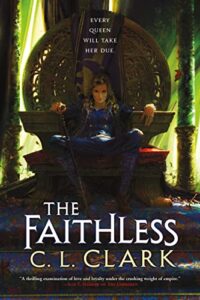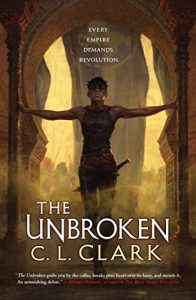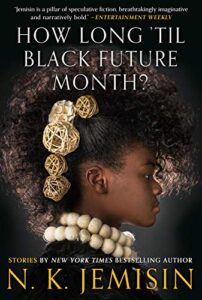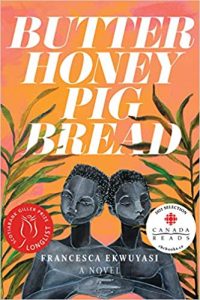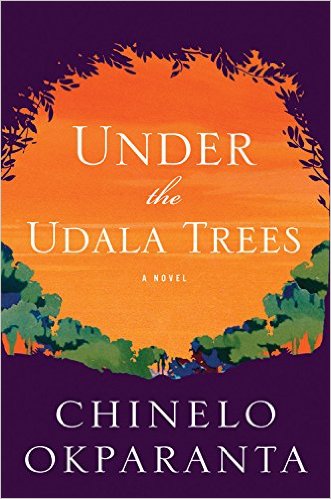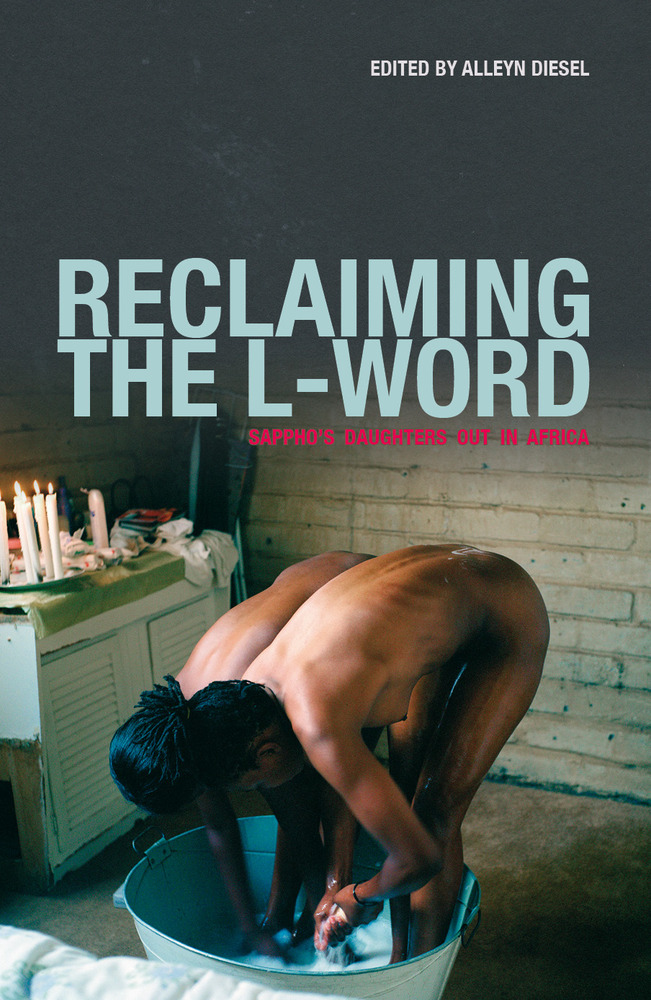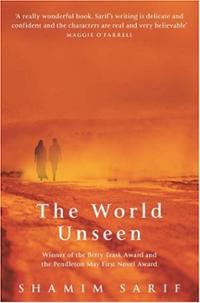Buy this from Bookshop.org to support local bookstores and the Lesbrary!
When I finished The Unbroken by C. L. Clark, I wasn’t sure I was going to continue with the series. It was brilliant, yes: thought-provoking and gut-wrenching, with commentary on colonialism and a passionate, doomed F/F romantic subplot. The strengths of the book, though—the bleakness that reflects the real-life horrors of living through war, occupation, and revolution; the fallible characters making mistakes with devastating consequences; the complexity of the depiction of colonialism—were exactly what made it difficult to read. I wasn’t sure I would be able to read another thousand pages of that between the next two books of the trilogy. By the time The Faithless came out, though, I felt ready to dive in again. And I was surprised to find that book two had everything I loved in book one, but with a lot more fun.
To be clear, this is still a story about empire and power struggles, with deaths and high stakes. But while book one took place mostly on the battlefield, book two is more about court politics in a country reminiscent of France. The power difference between Luca and Touraine is still there, but Touraine has more leverage.
It’s also interesting to see Touraine struggle with trying to figure out where she belongs: the country she was raised in as a child soldier, or the country she was born in and is trying to fight for? She feels outside of both, and is developing her own sense of identity now that she has more space to make her own decisions.
The relationship between Luca and Touraine is more of a focus, and the pining here is unmatched! It also feels more fun to read because there isn’t such a huge power disparity between them. I’m still not sure if they’re good together, but of course I was rooting for them to sleep together anyway. Also, Sabine—who has a friends-with-benefits situation with Luca—really steals the show. Her flirting with both of them and calling out their sexual tension is always fun to read.
This is still the Magic of the Lost series, so there’s a dark undercurrent underneath. Touraine is dealing with PTSD after her near death experience—something I rarely see in fantasy, even though of course you would be traumatized after something like that. The peace between Balladaire and Qazal is tenuous, and the conditions of their agreement are being bitterly fought over, which threatens to throw them back into combat at any moment. Violent revolution looms. Luca is looking for any sort of advantage to seize the throne—and finds that power comes with a price she isn’t sure she’s willing to pay.
I’m so glad I continued with this series. I appreciated the writing, plot, and characterization just as much as the first book, but I found it a much easier read—it probably helps that I’m now familiar with this world and these characters. It’s a rare second book in a trilogy that I like even better than the first. I’m excited to read the final book in the series when it comes out!

